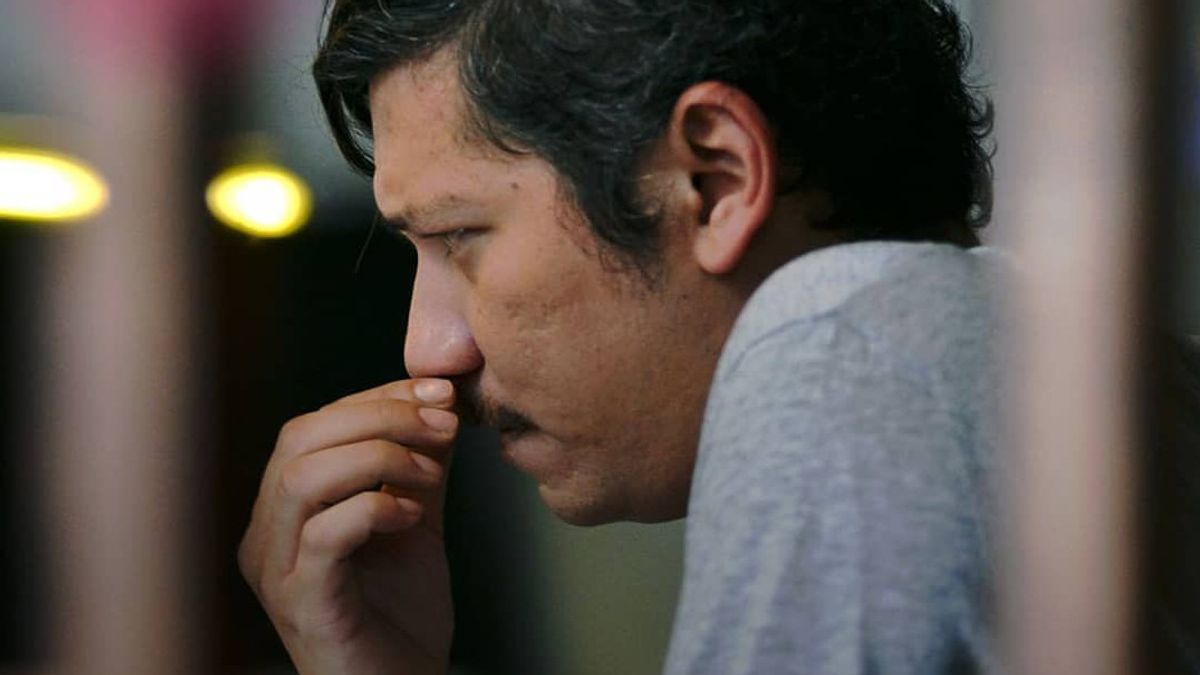JAKARTA - Felicia Tissue, a former lover of Kaesang Pangarep, told many things about her relationship with the son of President Joko Widodo (Jokowi). Once upon a time, Felicia claimed to have been invited to marry by Kaesang, before Kaesang disappeared. This term is commonly known as ghosting. We know that. But do we also know that ghosting can be prosecuted legally. There are precedents.
Through her YouTube account, Felicia detailed what happened between herself and Kaesang. According to Felicia at the end of December 2020, he and Kaesang spoke on the phone. During the conversation Felicia asked Kaesang to get married and "already informed Mr. Jokowi," said Felicia, quoted from Djawanews, Thursday, May 27. Not only Jokowi, Kaesang has also asked Felicia's parents for blessing.
Two weeks after the conversation, the two of them broke off contact. Kaesang, said Felicia, blocked all of his cellular contacts. At this moment Felicia admitted that she was devastated. Even so, Felicia is still trying to find out what's going on, Kaesang? Felicia did many ways, including contacting Iriana Joko Widodo, Kaesang's mother. But all the steps came to nothing. "Mrs. Iriana also changed her cell number."
Felicia also made contact with someone who she referred to as the Iriana family. Felicia called it "Bude." To Felicia, Bude promised information about the condition. However, again just a promise. Felicia also did not get an answer. "How strange. And even more cruel, his son is still active on social media but I am just ignored without news from all sides of Mr Jokowi's family."
Another effort was made by Felicia, namely by sending a handwritten letter from Singapore to Indonesia. Felicia hopes for a response from Jokowi and his family. Felicia said the impact of what happened between him and Kaesang was severe without clarity. "Because the impact will be very heavy for me if there is no explanation and resolution from his side," said Felicia with an emotional expression.
Ghosting from a legal perspectiveGiving a promise to marry someone, then breaking that promise can in fact be challenged. Not only civil but also criminal. Really this article does not ask any of us to sue a couple who broke their promise. Prisons are too full of criminalization of drug users and victims of the ITE Law. But cases like this actually already have jurisdiction.
What needs to be known first, this marriage promise is different from the marriage agreement as known in Law 1 of 1975 concerning Marriage. This marriage promise is usually conveyed verbally, perhaps even by seduction. Some time ago, the Supreme Court (MA) sentenced AS (34), a man from Banyumas, Central Java, to a fine of Rp150 million.

AS is considered to have broken a promise to marry his lover, SSL. Citing the MA's official website, this case was contained in the Supreme Court's cassation decision Number 1644 K / Pdt / 2020. The case file tells the story of this case starting on February 14, 2018. At that time, on Valentine's Day, the US expanded SSL by bringing both parents and relatives.
US brings engagement ring and delivery goods. The event that smelled of Javanese customs agreed that the marriage between the two of them would be held in September 2018. After the US application and SSL went to Cilacap. The two of them were staying at the hotel. On that occasion the US invited SSL to have sex. SSL refused on the grounds that it was not yet valid. The US had sulked and convinced SSL, their marriage was a matter of time.
[SERIES WRITING: The Decision to Marry is Everyone's Personal Authorization]
SSL also confirmed the first intercourse in his life. Two months since then, the US was caught having an affair with her former lover until September, the promised time, the US canceled the marriage. US meets SSL's parents and tells SSL to cancel marriage. The SSL family did not accept it and took the US to court.
The legal process is ongoing. The Banyumas District Court (PN) decided that the US had committed an illegal act which caused losses to SSL. The panel of judges chaired by Enan Sugiarto and two of its members, Tri Wahyudi and Randi Jastian Afandi, punished the US with an obligation to pay immaterial compensation of Rp. 100 million in cash and at once.
The US did not accept it and filed an appeal to the Semarang High Court. Not being granted, the US sentence was increased to Rp150 million in cash and at the same time. Rejecting the judge's decision, the US filed an appeal to the Supreme Court. The cassation was rejected. The Supreme Court considered that the US had acted against the law by unilaterally canceling its marriage plans with SSL without a valid reason.
"So that the cancellation of the a quo brings moral harm to the Convention Plaintiff (original plaintiff) and their family," said the consideration of the Cassation Council.
Jurisprudence and other precedents
Citing an online legal analysis, this case is pursued by a civil lawsuit using the argument of unlawful acts, which generally refers to Article 1365 BW / KUH Perdata. That article states "every act against the law which causes harm to other people, obliges the person who because of his fault caused the loss to compensate for the loss".
One of the jurisprudence of such a case is the Supreme Court decision handed down by Supreme Court Judge Bagir Manan, Parman Suparman, and Arbijoto in mid-July 2003.At that time, the Supreme Court Panel of Judges granted the appeal on the grounds that the failure to fulfill the promise of marriage meant that the defendant had violated moral norms and community propriety. His actions are also called against the law.
However, what happened to the US, SSL, and what Bagir Manan had decided was not the first. The jurisprudence of the above cases refers to the Supreme Court decision Number 3191 K / Pdt / 1984 dated February 8, 1986. The Book of the Association of Indonesian Jurisprudence which is Important for Day-to-Day Practices (Landmark Decisions) by Sudargo Gautama recorded the decision dated 8 February 1986 as the first in the context of the broken marriage promise.
From all the cases above, it can be concluded that the failure to fulfill the promise to marry is an act against the law because it violates morality and decency in society. The most important thing from this perspective is the fulfillment of the conditions for the loss of a broken marriage promise.
Can be convictedMore serious than what we have discussed above, in fact, cases of breaking the promise of marriage can be charged with criminal law. Supreme Court Decision No. 522 K / Sip / 1994 punished a man who had already impregnated a woman. The man then forces the woman to end the pregnancy. Accompanying rude behavior. The woman was kicked and beaten.
The Supreme Court sentenced the man to assault on moral honor, theft with violence, and maltreatment resulting in serious injuries. In another case, the Supreme Court has also convicted a man who broke his promise to marry under the construction of Article 378 of the Criminal Code, namely fraud. This case was processed by PN Sekayu, South Sumatra on November 5, 2015 ago.
The case in the Sekayu District Court places a defendant who promised to marry his girlfriend, both of whom discussed a dowry. The defendant fled to Java Island to avoid marriage after obtaining a number of items from the victim's witness's family. The panel of judges challenged the defendant's act of embarrassing the victim witness and his family.
Even so, not all lawsuits against marriage promises are accepted. The Supreme Court's cassation decision dated February 23, 2013 showed the Panel rejected the original Plaintiff's appeal because it failed to prove that their argument had handed over virginity to the Defendant.
* Read other information about LEGAL or read other interesting writings from Yudhistira Mahabharata.
BERNAS OthersThe English, Chinese, Japanese, Arabic, and French versions are automatically generated by the AI. So there may still be inaccuracies in translating, please always see Indonesian as our main language. (system supported by DigitalSiber.id)









